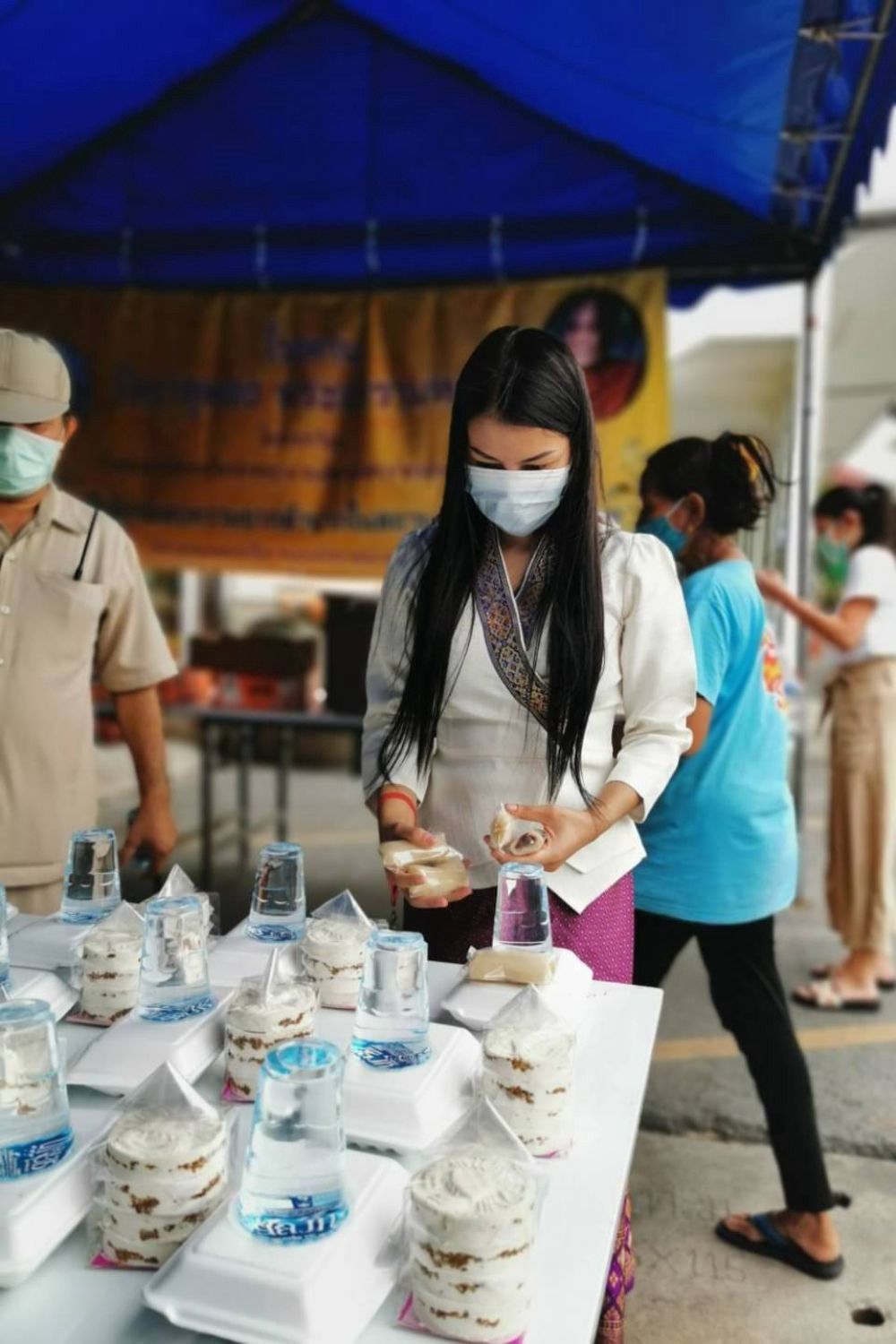How will Covid-19 change the sex work industry?

In mid-February, when reports of Corona virus cases were starting to dominate international headlines, the initial impact on the sex work industry seemed minimal. In Macau and Hong Kong, we had seen Smooci activity drop, as locals adhered to a precautionary 15-day shutdown, closing casinos, bars, and karaoke lounges, but that inconvenience was a few days from being lifted, and life in Asia’s World City about to return to its normal, chaotic self. At this stage few were predicting a global epidemic, which would turn the lives of many upside down, and with sex workers among those to face the harshest of new realities.
Holiday and business trips were suddenly being cancelled at an alarming rate, and within days, flights and non-essential travel were being restricted, and then forbidden altogether. Repatriation programs were quickly put in place to bring expats and long stayers back to their homelands. The Hong Kong and Macau shutdowns were not only kept in place, but hardened, with everyone ordered to strictly stay at home. The shutdowns spread through Asia, and then Europe and the rest of the world, as we all struggled to let the reality of a global pandemic sink in. What would normally be known as the quietest months of the sex work calendar, and a notably uneasy time for sex workers living close to the poverty line, was now an unthinkable crisis.
Tepidly, countries and communities have started easing social distancing rules in a bid to bring back some form of ‘normality’ and kick start economies, but uncertainty and worry still grips the many. The way we work and interact with others is going to be very different for some time to come, and those in the sex work industry are anxiously trying to figure out, how will sex work be in the coming weeks, months, and years.

Russian Doll, Hong Kong Escort
"During the lockdowns work has been very very quiet. It’s important to stay positive and healthy and so I’ve been using this time to focus on essential tasks concerning my spirituality, education, and physical fitness … I’ve been lucky and haven’t suffered any great losses, yet. But we all really hope that things will be busy again this summer, or many of us will face serious problems."
What can be hoped for this Summer?
While many government and community schemes have been set up to support the non-essential workforce, with varying degrees of success, many sex workers have struggled to be included in such relief packages. Sex work is rarely recognised as work at all, and austerity measures, inefficient social programmes and benefit systems, are the reason so many turn to sex work in the first place.
This summer will see people allowed to re-enter the work place, but to do so following strict distancing rules. Sex work is not just a contact occupation but one which requires the most intimate of contact between strangers; very few sex acts can be satisfyingly undertaken at 2 metres apart. So where does that leave a sex worker, short of adequate support and charitable relief, knowing that an already unnecessarily dangerous occupation, has the added challenge of avoiding a widespread illness which can be highly contagious and undetectable at the same time.
One sex worker unable to work can mean an entire family in danger. The vast majority of sex workers are also carers, financially responsible for immediate family. In places such as Thailand and Philippines, it’s very common for a single sex worker to be responsible for the financial care of not just their children and parents, but have an economic responsibility which extends to grandparents, brothers and sister, the children of their siblings, and even uncles, aunts, and cousins.
Some sex workers have been able turn to camming and sex content creation, and perhaps this summer will see more explore this as an option. However, camming and content sales are not a booming industry. Camming is already a highly competitive and over saturated market, with very long hours and limited earnings. The necessary demands and skills are also very different, and there’s far less opportunity to be discreet, with few having adequate private space to do such work when living with family. For the vast majority, it isn’t a viable alternative.
"In Hubei, China, one of the first countries to face a lockdown, domestic violence reports to the police increased by 300% in the first month." (15)
Rises in domestic abuse have been noted around the world, since the pandemic began. A combination of anxiety, confusion, helplessness, and economic constraints, have contributed to a concerning rise in tension and violence, in many homes. Sex workers are a group who constantly face regular fear of abuse, both physical and mental. In the US, there was already a lot of concern about a sharp increase in abuse towards sex workers, forced to take more risks after the recent introduction of the SESTA/FOSTA act, which closed a number of high-profile adult platforms. (1) Things are only likely to get more concerning as sex workers try to adjust to these difficult new challenges.
Through history, sex workers have often been an easy target for blame and ridicule during times of panic and uncertainty, labelled as disease spreaders and conscienceless predators. "Sex work is the vault in which society stores some of its keenest fears and anxieties," aptly stated in ‘Revolting prostitutes: The fight for sex workers’ rights.’ While the majority of level headed people would have no instinct to project their fears and anxieties on to sex workers at this time, there are those who are already exercising hatred towards health care workers in senseless responses to the epidemic. Sadly, we have to factor in the possibility of such twisted and mindless actions, and it’s genuinely worrying that we may see an increase in violence and negative attitudes toward those returning to sex work at this time.
Though restrictions will continue to ease and greater freedom will emerge, sex workers will likely face a very difficult and frustrating Summer. Yes, some regular clients will return, but there will be notable financial restraints. Business and leisure travel will still be limited, recommended as essential only, and escort services will be the first expenditure crossed out on many client’s reduced monthly budget. There is reason to be optimistic as this is a pandemic likely to be under control in 1–2 years, rather than 1–2 decades, but the coming months will be challenging, and many sex workers will face very difficult decisions regarding their personal health and safety.

Danna, Manila, TS Escort
" Since the pandemic started, I’ve been afraid to meet with strangers. With total lockdowns here in Manila I haven’t had the opportunity to work so I haven’t had to face that fear, but I’m having very mixed feelings when I think about it. Part of me is desperate to get back to work so I can earn money and help my family during this time, while another part of me is nervous to meet people while there’s still a danger I can get sick, and then make my family sick . "
Will there be a ‘high season’ this year?
In most parts of Asia, November through to February is known as the high season for sex workers. No matter how tough the Spring and Summer months have been, there’s a sense that during the high season, when numbers of single tourists and business travellers vastly increase, work and rewards also increase, substantially, and a bad year can yet become a prosperous one.
"Tourism won’t be one of the industries hardest hit by the virus, it will be the industry hardest hit." (4)
That high season is inextricably linked to the travel and tourism industry, which itself is perhaps the industry hardest hit during the pandemic. Major airlines are already in panic, closing down hubs, laying off 10,000s of staff, and few governments are well positioned to hand over adequate bailout packages. There have been very mixed opinions on whether this will result in a steep rise or fall in the cost of flights, but all are in agreement that the number of flights and travellers will significantly drop.
Not only will budgets be low, but confidence will be too. When airports and major flight routes reopen, will the average person still be willing to jump on an internationals flight? Knowing that it would not only bring a higher chance of catching Covid-19, but it could then leave you in a foreign country with few health insurers willing to cover any medical treatment needed.
The global shutdowns mean many businesses have been forced to switch to remote work and online meetings. The popularity of software such as Zoom and Microsoft Teams have highlighted the ease, speed, and effectiveness of a good internet connection and reliable cloud meeting app. Many companies will now think twice before planning future business trips, especially when the purse strings need to be pulled tight.
There are glimmers of hope. China has one of the world’s largest domestic travel markets, and within a week of easing restrictions and allowing free travel, it immediately a 40% increase in movement, as national travel was quickly picking up. According to Dr. Wolfgang George Arlt, director of the China Outbound Tourism Research Institute, travel and tourism within China could be back to 70% within the next 6 month. (4) While some have called this extremely optimistic, it’s important to highlight how significant a busy travel and tourism market is, not just to China but to any healthy economy.
In the UK and Germany, the travel and tourism sectors make up 6% of the national workforce, in the Philippines that’s 10%, in Spain and Italy it’s as much as 13%, and in Thailand it’s estimated that travel and tourism make up close to 15% of national employment. All of these countries will be massively focussed on bringing the travel and tourism sectors back to life, to save economies and limit unemployment.
" Sex workers .. are taking care of each other and our communities with initiatives, like hardship funds, to raise money for people in need. This is an extension of the caring work that sex workers, mostly women, do for each other every day. Which is largely invisible as a result of the prostitution laws that prevent us from working together for safety." (5)
During these tough times, sex workers are pulling together. There are examples of charities and funds working relentlessly through the pandemic. As well as continued campaigning for improved conditions, equality, decimalization, and rights for sex workers, notable hardship funds are offering aid for sex workers during this crisis. In the UK the SWARM collective set up a funding page with recent donations going directly to sex workers in severe financial hardship, which has helped 100s of sex workers in the short term: https://www.swarmcollective.org/donate
Across Thailand, large community efforts have been made to create food tables for those in desperate need of help. Many of these food and water stations have specifically targeted the red-light areas of Bangkok, Pattaya, and Phuket. Supported largely by the police, residents and local restaurants have been providing free meals and essentials, helping many of the sex workers hit hardest by this sudden, unexpected crisis.(6)
While there are strong hopes that, by the end of the year, we will see some resurrection of the sex work industry, we can’t expect things to be close to how they were at the same time last year.

Tanxxx, Bangkok, Escort
" I stayed in Bangkok as I needed to work. But I have not had many clients. Now I’m not able to earn money, and also not able to travel and be with my family… They are saying lockdowns will be over next month, but many people now have problems about money and work, I don’t think we will see many clients. I worry for my friends and others, some of them have already run out of money and are scared. It’s important we help each other during this time."
When will the industry be back to normal?
At a time when people are unsure about what to expect in the next few weeks, it’s very hard to gage what the long-term future of sex work will be. It’s very easy to take a negative view, but while the short-term future of sex work is going to face some tough challenges, beyond that there are reasons to be positive.
The SESTA/FOSTA act was introduced in the U.S. in April of 2018, and was billed as a fight against sex trafficking. It was being watched closely by governments around the world, with some, including MPs in the U.K., pushing for localized versions. (7) In effect, the introduction of this bill (or rather 2 bills quickly cut and shut together), has closed down a number of the most influential platforms and forced many sex workers into more dangerous means of meeting clients. 2 years in, it’s already clear how ineffective and detrimental these laws have been. The current pandemic has only further highlighted the need for better technology and safer platforms as a way to tackle deep routed safety issue, not laws which drive more of the industry into the dark and widely unseen areas of society. (8) The importance of allowing people to work online, when possible, has never been so powerfully emphasised, as it has been during the fight against covid-19..
With so many groups and communities fighting against SESTA/FOSTA (not only for the harm it causes sex workers, but also for being anti-free speech and a worrying step in internet censorship), (9) other countries will be less keen to adopt the same approach, and there is now hope building that SESTA/FOSTA itself could be overturned in the U.S.. Just before the pandemic arrived, a group of sex workers and human rights activists won the right to appeal the law. It is due to be appealed in federal court once court systems are up and running again. (10)(11)
"even though sex workers create 4–10% of the GDP (in Thailand), sex workers are criminalized and left out of Labour Protection and Social Security." (12 )
Often labelled as the world’s oldest profession, the industry has survived 2 world wars, countless natural disasters, and even some notable pandemics; such as the Black Death, which took over 200 million lives, and The Great Plague of London, which took 300 years to eradicate. The question should not be whether the industry will return, as it was, but rather, how can we use this pressing of the reset button to improve the safety, support, and rights of those within it.
As much as governments choose to ignore the issue, and sweep sex workers under the carpet in times of widespread woe, the sex work industry makes up a notable part of many GDPs. There are estimates that sex work accounts for between 0.43% to almost 4% of the national GDP in the UK, with similar figures often quoted for Spain and Italy, and in Thailand and the Philippines these estimates are as high as 10%. These are figures that are hardest to ignore when they are suddenly dwindling.
"COVID-19 shines a red light on sex workers’ lack of protection — our demands must be included" (13)
So often, after extraordinarily challenging circumstances, we grow closer and more accepting of each other. So often, after widespread catastrophes, comes social change. As economies and communities begin to rebuild and look at where things went wrong, and how we can make things better, for everyone, it’s important that the voices of sex workers are heard. Among those leading the voices of sex workers in Europe are The English Collective of Prostitutes (14) and Redlight Covid Europe (13) , who are pushing for 4 key demands, with growing hope they will be met:
- Income substitution and housing support for sex workers.
- Moratorium on fines, raids, arrests and prosecutions.
- Mental and physical health services for those in sex work.
- A long term vision for the societal inclusion of sex workers: decriminalisation of sex work, economic reforms, and regularisation of migrants.
In any other industry these would not even be considered demands, but be basic human rights.
Hope in the Land of Smiles
In Thailand, where there are estimates of up to 2 million sex workers, a major breakthrough has been made. For the first time, sex workers are eligible for unemployment benefits, and have been included in the support and aid grants laid out in the country’s pandemic relief programme. This is a significant moment in the fight for sex worker rights and equality. Thai sex workers who suffered greatly in the 2004 Tsunami, and the 2011 floods, were not treated as a displaced workforce nor afforded this same level of acceptance, support, and recognition in a moment of
Liz Hilton, from Empower Thailand (12) , an NGO working to offer sex workers counselling, education, and career and life guidance, resiliently puts it.. now there is an "acceptance that the work we do is work," and "if sex work can be recognized in a crisis, it has to be recognized outside of a crisis. There’s no going back."
Sources and further reading:
(1) FOSTA/SESTA throws sex workers into the fire.
(2) Revolting prostitutes: The fight for sex workers’ rights.
(3) How Corona Virus is impacting the travel industry.
(4) The future of travel and tourism.
(5) Statement: Corona virus and sex worker demands.
(6) Thai restaurant owners donate food to people struggling financially.
(7) UK politician push for FOSTA SESTA style sex censorship.
(9) New SESTA laws threaten the future of the internet as we know it.
(10) Sex workers win major decision in federal court.
(11) Woodhull Foundation (fighting SESTA).
(12) The Empowerment Foundation.